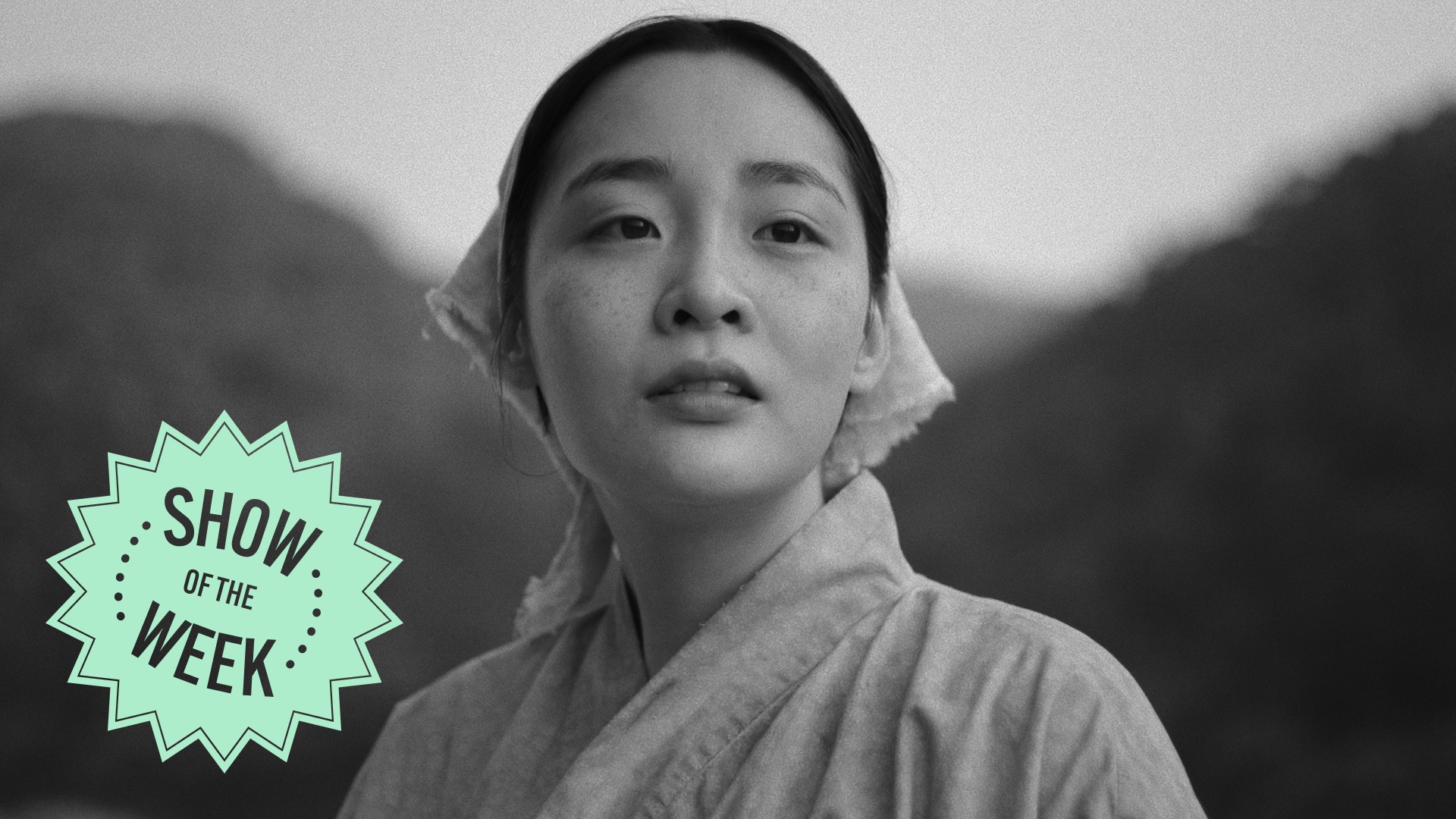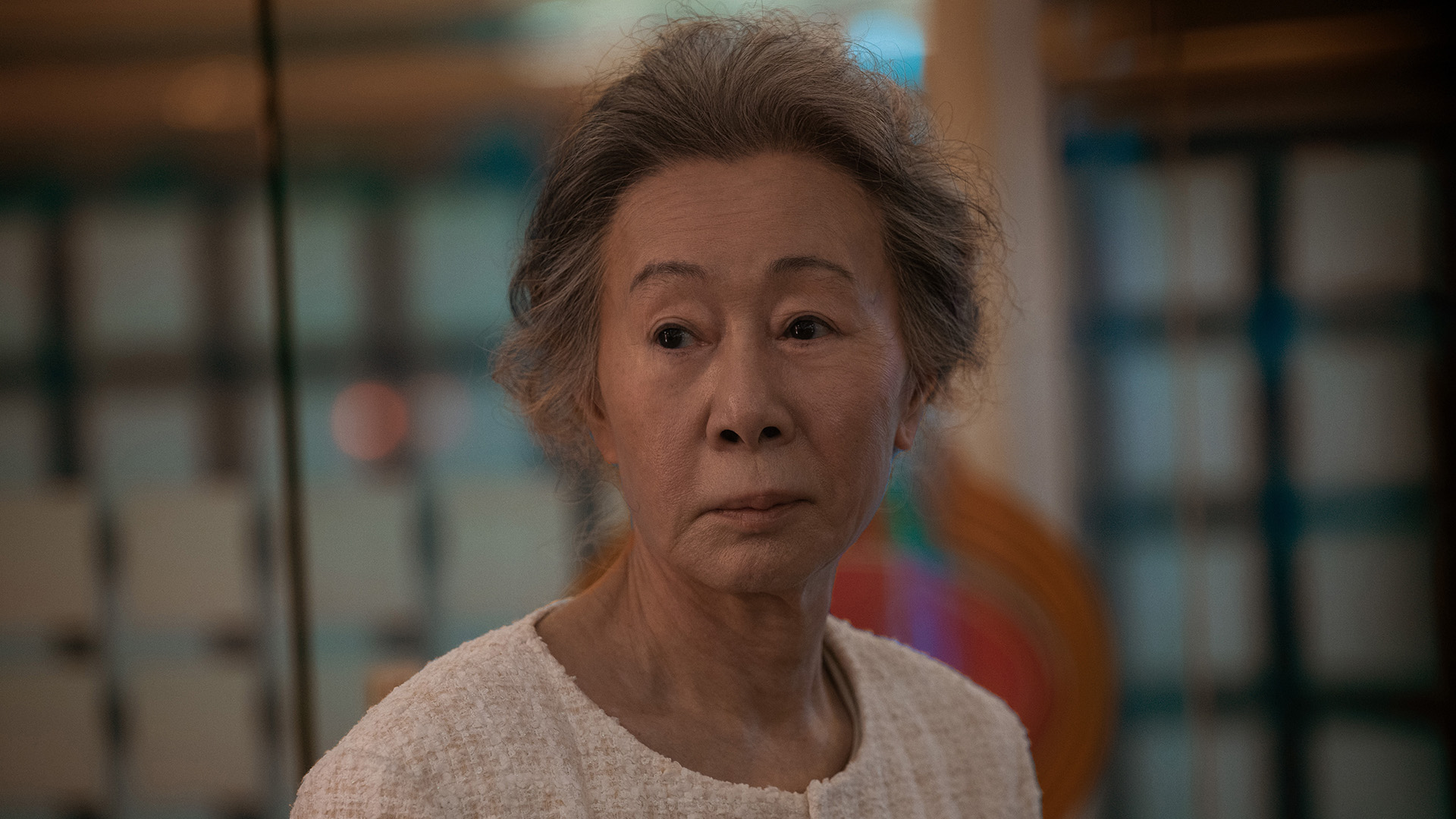Pachinko exists right at the intersection between history and personal memory

Clarisse Loughrey’s Show of the Week column, published every Friday, spotlights a new show to watch or skip. This week: Pachinko’s constant mirroring of past and present.
Not much else on television is as tender, intimate, and vulnerable as Pachinko, created by Soo Hugh as an adaptation of Min Jin Lee’s 2017 novel, and which shifts between the decades and generations of a Korean immigrant family in Japan. But, suddenly, on occasion, an image seems to lurch out of a nightmare: a train barrelling towards the screen, with the fury of a hell beast; a kid in a gas mask, stood in the middle of the street, waiting but clueless; a burning coffin interrupted by the sound of an air raid siren.
In Osaka, 1945, Sunja (Kim Min-ha) does her best to survive, making and selling what kimchi she can despite the food shortages. She lives with her two sons, Noa (Kim Kang-hoon) and Mozasu (Eunseong Kwon), alongside her sister-in-law Kyunghee (Jung Eun-chae). We’re told that Kyunghee’s husband Yoseb (Han Jun-woo) works in an arms factory in Nagasaki. The sound of that city’s name in someone’s mouth sends an immediate, portentous chill.
Every second of screen time after is caked in the monstrous inevitable, the dreaded march of history. And when the bomb finally drops, in an episode directed by Arvin Chen, it’s preceded by the tick of a countdown. Its depiction is restrained and suggestive, but no less horrifying in the totality of its destruction. That’s what Pachinko is capable of, existing right at the intersection between history and personal memory, between what falls like an anvil or like a floating petal.
As the Americans, and their planes, reach Japan, Sunja is forced to make an uncomfortable sacrifice to ensure her children’s safety. It’s a common thread in the series, the way characters are forced to reshape their lives and crush their souls in order to secure their own futures. Her husband, pastor Isak (Steve Sang-Hyun Noh), was arrested for helping labourers fight for a fair wage. So, she agrees to leave with Koh Hansu (Lee Min-ho), a gangster, secretly Noa’s father, for a remote farm safe outside the city, but further under his control.
Meanwhile, in 1989 Tokyo, the older Mozasu’s (Soji Arai) son Solomon (Jin Ha) tries to reverse his fortunes after being fired from his job after an act of kindness and empathy. He finds himself the target of powerful businessman Abe (Yoshio Maki) and complicates his relationship with his former colleague, Naomi (Shōgun’s Anna Sawai). He’s kind of a mess, and it’s hard not to pass those burdens on to his grandmother (Youn Yuh-jung, who won the Oscar for 2020’s Minari). There’s no weak performance here, but Youn and Kim are standouts, since their emotions feel concentrated, and purified, but never overwhelming.

And there’s a constant mirroring of past and present – even if events don’t seem directly linked by narrative, there’s some train of thought between them, some inseverable link that makes Sunja think of her hardest ordeals on her son’s happiest day. Sonja and her family still face prejudice in 1989, even if it manifests in different ways (in one scene, in an offhanded comment about Japanese pronunciation by a grocery store clerk). Her grandson knows how much more she’s suffered. He feels so guilty that he struggles now, in what was meant to be a safer and more secure future. “I can’t live always feeling sorry for you,” he tells her. It can be hard for one generation to understand another’s pain. But Pachinko finds grace in every challenge.



















